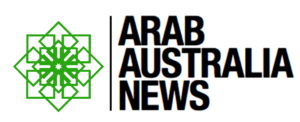Mental Health charities and organisations are encouraging more people from culturally diverse groups to seek help. More Australians than ever before are seeking treatment for a mental health condition . Advocacy groups have contended that while the country has come a long way, there is still a long way to go to breakdown the stigma around asking for help – particularly in some culturally and linguistically diverse(CALD) communities.
Melbourne Man Vasan Srinivasan is a Vice-Chairperson of Mental Health Foundation Australia who understands this predicament among the diverse communities acutely. He has a personal story to tell. He grew up in a small, remote village in India about 350 kilometres from Chennai. “I have seen enough in my younger days that people were suffering at the time, now I can relate to why they were suffering. I have seen aunties in my family with antenatal depression, which I didn’t understand at the time. We actually isolated them, we locked them up, we didn’t understand what they were going through and that really hurts me”.
For the past 26 years, Mr Srinivasan has been dedicating his life to understanding mental health and trying to make a change, so people don’t suffer like his aunties did.
The Mental Health Foundation Australia has more than 300 members in its Multicultural Ambassador Programme. One of its core messages that it wants to send out to the CALD community is that mental health is not a stigma, mental health issues can be cured.
Frank Quinlan is from Mental Health Australia, which is Australia’s peak body, representing all the mental health organisations. He states that the “one-size-fits-all approach doesn’t work when it comes to providing mental support. It is especially not practical in particular communities that have large culturally and linguistically diverse groups, or in groups where there is sexual and gender diversity and therefore the discussion of the mental health has to be tailored differently for different groups”.
World Mental Health day is on the 10th of October and Mental Health Foundation Australia is marking Mental Health Month.
Mr Srinivasan is hosting seminars, marches and forums across Victoria during October, to get people talking.Three million Australians are living with depression or anxiety affecting one in four Australians. This is the most common form of Mental Health condition.
Dr Grant Blashki from Beyond Blue says “one in five of those who actually seek help for anxiety wait longer than six years to do so.” But he reports that more people are seeking help in record numbers then before. He also states that a new study shows that general practitioners are seeing more mental health issue consultations than other common forms of traditional consultation such as common cold or chest infections or back pain..
He is also very encouraged by the progress he has witnessed over the last 25 years as people are much more ”open and comfortable talking about mental health Issues like anxiety and depression. The community discussion surrounding mental health have really been evolving and progressive”.
More information about Mental Health is available at BeyondBlue.org.au. Kids Helpline (for young people aged 5 to 25) can be reached on 1800 55 1800
Australians experiencing a crisis can contact Lifeline on 13 11 14 and via lifeline.org.au










